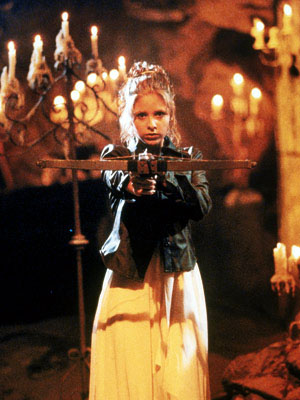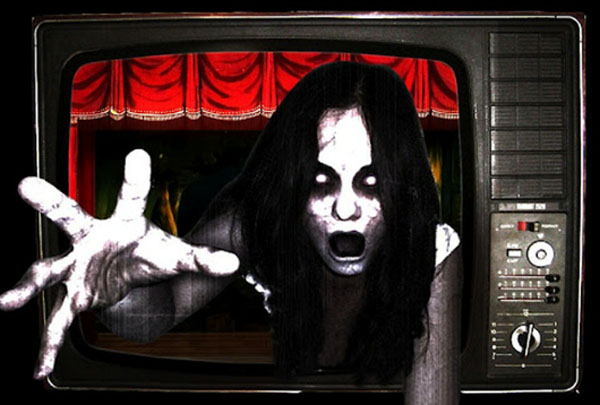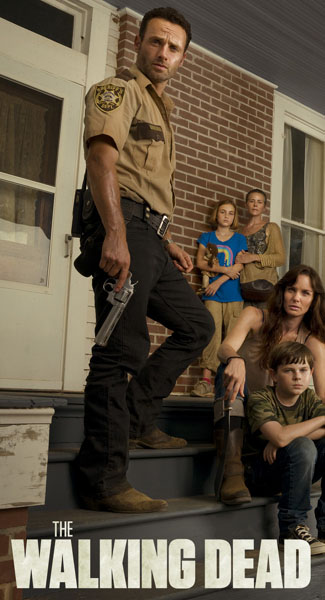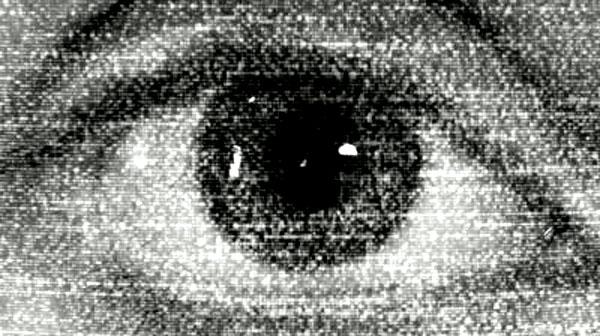Horrible Life Lessons Two: Titans of TV
“We make up horrors to help us cope with the real ones.”
-Stephen King, Spooky Dude
After a lifelong fight for survival from birth in misfit shows like The Twilight Zone and Outer Limits horror television has finally achieved the network attention it deserves. At present it seems every TV network has some show that involves vampires, werewolves, demons or other creatures that go bump in the night. In fact, a number of shows in the last decade have even become mainstream hits or long-term successes. This is a far cry from a genre that self-sustained a shambling existence in small Comicon booths, drinking the life-blood of fan petitions to stave off the axe for another season.
Key to these titans of television horror is that they use their diverse supernatural elements as tools to depict the core essentials of the human experience. Much like the salty enhances the sweet, a successful horror TV show uses the extreme to illustrate the every-day; the horror to highlight the humanity. They are successful not in their depiction of otherworldly difference, they are successful because they build on how we all are the same.
The three shows below all have at their cores, a key human struggle “between an essential human need and the potential to achieve it,” in the words of Pr. Manfred Max-Neef. Pr. Max-Neef is a world renowned economist, environmentalist and creator of a model of Fundamental Human Needs that has been used to shape developing cultures throughout the world. He said that “the very essence of human beings is…much more than mere survival, needs bring out the constant tension between deprivation and potential which is so peculiar to human beings” (Max-Neef, p.199,1992).
These horror television shows capitalize on that tension for success, and so can we. There are nine fundamental human needs that remain the same regardless of culture, race or time, but that in our modern era “human concerns are neglected more and more” (Max-Neef, p.204, 1992). This increases the desire to seek out horror entertainment that presents these concerns as paramount to survival, though through facing zombies or vampires rather than the increasingly busy and banal modern lifestyle.
The nine fundamental human needs are for Subsistence, Protection, Affection, Understanding, Participation, Creation, Leisure, Identity and Freedom. The shows below highlight the need to fulfil our potential for protection, identity and freedom, but all the needs are addressed in their stories. This is expected, according to Pr. Max-Neef (p.199, 1992) because meeting one of these needs will fulfill others by default, like Identity can also satisfy part of our need for subsistence, understanding, participation and creation for example.
A Supernatural Protection
“Dean: Damn cops.
Sam: They were just doing their job.
Dean: No, they were doing our job, only they don’t know it so they suck at it.”
-Sam & Dean Winchester, Supernatural, Nightshifter, 2005
The Winchester Brothers, Sam and Dean, hit the airwaves in 2005 back when the CW was still the WB. The plot was small back them, but protection was at its core. Sam and Dean were raised by their father to do two things; Protect humanity as “Hunters”—a subculture of humans who know of and oppose all manner of supernatural adversaries and to just protect each other as brothers. This seemingly simple mandate birthed a show that has thrived for almost a decade and moved from fighting mundane monsters to being caught in the Divine war, and beating the Devil himself.
The Fundamental Human Needs are not only grouped by their satisfiers above, but in how they are expressed as “Being, having, doing or integrating” the satisfied need into daily life. Protection can be expressed as care, such as Sam Winchester’s care for the less fortunate or Dean’s care for damsels in distress. The brothers’ care for family fits more into the “having” expression, such as “having” a family, as either their biological family or their family of Hunters.
Perhaps the most engaging aspect of Supernatural, and thus its success, is in the how their protection is expressed as “work.” It begins as their jobs, and for both has been shown to be their calling, and in how the qualities of “aptability…equilibrium and solidarity” are shown in satisfying their own protection needs (Max-Neef, p. 206, 1992). Dean was raised to protect his little brother Sam, Sam grew up caring for his over-responsible big brother and woe to all manner of darkness that seeks to tear them apart. Both have died, gone to Hell, and returned, ever seeking to re-establish the equilibrium within their relationship to each other, the forces of Heaven and Hell, and the unattainable daily life that they protect.
A Walking Dead Identity
“Nowadays people are just as dangerous as the dead.”
-Gabriel Stokes, The Walking Dead, Strangers, Oct. 19, 2014
Less of a legacy and more of a sudden phenomenon, AMC’s The Walking Dead has overrun the watching world, much like the zombie plague that is its backdrop. It follows a group of survivors who loosely orbit the immediate family of small town Sheriff Rick Grimes in their unifying pursuit of finding “a sense of belonging, consistency, differentiation and self-esteem” in a world that has suddenly become hostile.
Now in its third season The Walking Dead has explored the Being and Doing expressions of “Symbols, language, religions, habits, customs, reference groups, sexuality, values, norms, historical memory, and work” in the zombie filled post apocalypse (Max-Neef, p. 207, 1992). Just in the very last episode, priest Gabriel Stokes observed the Identity deprivation/potential conflict that underscores the show. In their pursuit of need satisfaction many people have sacrificed who they are and are redefining not just their personal identity, but what it means to be human. Rick, himself, illustrates the constant moral struggle to retain his self-image as a father, Sheriff, leader, warrior or provider as he stretches ever more to preserve those he holds dear in a world devolving.
Pr. Max-Neef observed that “something which is lacking is acutely felt” and so “the degree that needs engage, motivate and mobilize people, they are a potential and eventually may become a resource. The need to participate is a potential for participation, just as the need for affection is a potential for affection” (Max-Neef, p. 199, 1992). Week after week viewers tune in, not seeking gore, desperation and violence, but because in the lives of these TV survivors they feel the acute lack of the culture which causes their own daily stress. Viewers also share the hope and fear that in seeking to satisfy their lack of identity, the survivors will create a lasting culture even greater than the one that we now live.
Buffy the Freedom Slayer
“I could do anything I want, and instead I choose to pout and whine and feel the burden of Slayerness? I mean, I could be rich. I could be famous. I could have anything. Anyone…and you know why I don’t? Because it’s wrong.“
-Buffy (Faith), Buffy the Vampire Slayer, Who are you? 2000
 Buffy the Vampire Slayer ran on the WB from 1997 to 2003, but changed the watching world in those six years. The wry, surprising and witty perspective that writer Joss Whedon took on horror as a whole and the many tropes and typical plotlines that were staples of the genre then has been emulated and expanded upon from that point forward. Whedon took the very concept of the ditzy blonde that is chased into the alley by a monster and can only scream and turned it inside-out with a heroine who is one part a goofy blonde cheerleader and one part “The Chosen One” she who alone in every generation has the supernatural power to fight supernatural evil.
Buffy the Vampire Slayer ran on the WB from 1997 to 2003, but changed the watching world in those six years. The wry, surprising and witty perspective that writer Joss Whedon took on horror as a whole and the many tropes and typical plotlines that were staples of the genre then has been emulated and expanded upon from that point forward. Whedon took the very concept of the ditzy blonde that is chased into the alley by a monster and can only scream and turned it inside-out with a heroine who is one part a goofy blonde cheerleader and one part “The Chosen One” she who alone in every generation has the supernatural power to fight supernatural evil.
Buffy’s struggle to live as high school cheerleader versus her duty to be the Slayer was the core theme of the whole series. This tension between her lack of freedom and potential hit on many fundamental expressions such as “autonomy, self-esteem, determination, passion, assertiveness, open-mindedness, boldness and rebelliousness” it also fostered examination of “tolerance” as expressed by Buffy’s once-stuffy British “Watcher” (like a Slayer teacher).
I don’t want to spoil the end of a truly profound TV series (except for one season, sheesh!) but in terms of the potential for final expression of freedom, Buffy and her Scooby Gang shake the Slayer concept to the root, exercising the right of dissent and change, ensuring that finally even “The Chosen One” gets to choose her own path.
And now it’s time to choose your own path, just like Buffy or to define your own identity, like Rick, or to approach your work and family as a calling like the Winchesters. “To approach the human being through needs enables us to build a bridge,” between abstract human concepts and daily life, Pr. Max-Neef said (p. 201, 1992), “To understand human beings in terms of needs…will prevent any reduction of the human being into a category of a restricted existence.” If you seek television for an enjoyable escape, I urge you to try these shows. Even more, I urge you to look at what fundamental needs you may be seeking to satisfy voyeuristically in your TV life and to go fulfil your true potential in your daily life, because if you don’t, that would be a true horror.
__________________________________________________
Real-Life Economics: Understanding Wealth Creation, ed. Paul Ekins & Manfred Max-Neef, Routledge, London, 1992, pp. 197-213. Retrieved from: http://atwww.alastairmcintosh.com/general/resources/2007-Manfred-Max-Neef-Fundamental-Human-Needs.pdf




